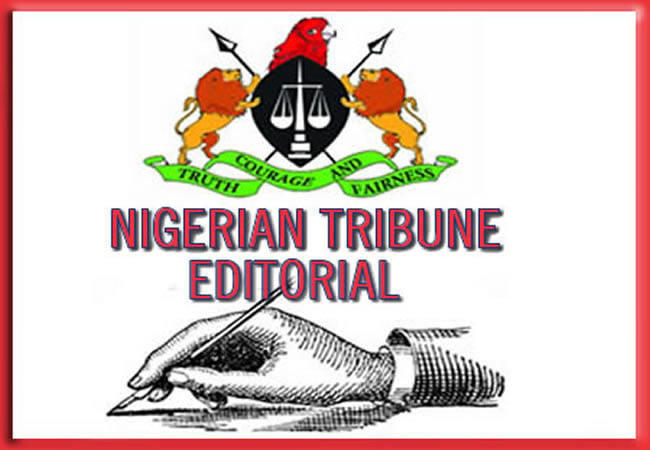TODAY, most Nigerians have a sinking feeling about their country and its prospects. Everywhere they look, they are confronted by social demoralisation, political tension, economic immiseration, and full-on banditry. Since the country’s return to civil rule in May 1999, things have never been this bad. And increasingly, there is legitimate fear that the next general election scheduled for 2023 may be imperiled by the current situation. Among international watchers of Nigerian politics, there is genuine fear that things could spiral out of control.
The latest dignitary to echo this fear is none other than the Director of the United Kingdom’s Foreign Commonwealth and Development Office, Christopher Pycroft. Speaking last week in Abuja at the launch of the Nigeria Governors’ Forum (NGF) Peace and Inclusive Security Initiative (PISI), Mr. Pycroft delivered a grim warning that the 2023 general election may not hold if the current tide of violence and insecurity is not stemmed. For Mr. Pycroft, Nigeria faces a five-pronged security challenge: religious insurgency in the North-East, farmer-herder conflicts, tensions around resource control in the Niger Delta, ethno-nationalist upsurge in the South-West and South-East, and banditry in the North-West. Taken together, these conflicts “represent an existential threat to Nigeria’s unity and its development.”
We agree in toto with both Mr. Pycroft’s diagnosis of the Nigerian situation and his gloomy assessment of the country’s prospects. One does not need a doctorate in political theory (and in case anyone insists on such a qualification, Mr. Pycroft in fact boasts a PhD in political theory and international relations) to see that the country is firmly on the path to perdition. But what is to be done? How can the country avert this imminent risk? For most Nigerians, something must be done about law enforcement that seems to revel in turning its instruments of violence on hapless ordinary citizens. Every year across the country, the police and the army kill an average of 1,400 Nigerians. Mr. Pycroft agrees on the imperative to reform the police and the army, but insists, rightly, that “the solution to Nigeria’s instability does not lie in simply strengthening the police and the army but rather in building federal, state, local and community level infrastructure to manage conflict; and in giving young people jobs and opportunities so they have a stake in a prosperous and peaceful Nigeria.” We could not agree more.
Beyond reforming the police and the army, Mr. Pycroft points to something even more fundamental: “Injustice and impunity, weak justice institutions…” The importance of strengthening the institutions of justice cannot be overestimated, and it goes without saying that, properly speaking, there can be no democracy without those institutions, secure within the framework of law and order. This is what makes some of the recent moves of the Muhammadu Buhari administration (the Twitter ban, the shanghaiing of the Indigenous Peoples of Biafra leader, Nnamdi Kanu, and the murderous invasion of the Yoruba self-determination crusader, Sunday Igboho’s residence) all the more worrisome.
We thank Mr. Pycroft for his warning and ask the authorities at various levels to pay heed.
YOU SHOULD NOT MISS THESE HEADLINES FROM NIGERIAN TRIBUNE
We Have Not Had Water Supply In Months ― Abeokuta Residents
In spite of the huge investment in the water sector by the government and international organisations, water scarcity has grown to become a perennial nightmare for residents of Abeokuta, the Ogun State capital. This report x-rays the lives and experiences of residents in getting clean, potable and affordable water amidst the surge of COVID-19 cases in the state…
Selfies, video calls and Chinese documentaries: The things you’ll meet onboard Lagos-Ibadan train
The Lagos-Ibadan railway was inaugurated recently for a full paid operation by the Nigerian Railway Corporation after about a year of free test-run. Our reporter joined the train to and fro Lagos from Ibadan and tells his experience in this report…






